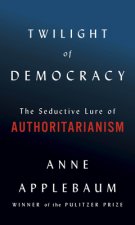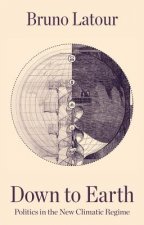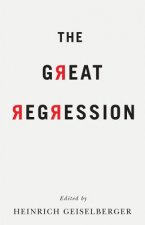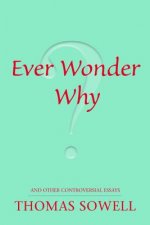
Code: 04113417
Public Goods, Private Goods
by Geuss
Much political thinking today, particularly that influenced by liberalism, assumes a clear distinction between the public and the private, and holds that the correct understanding of this should weigh heavily in our attitude to hu ... more
- Language:
 English
English - Binding: Paperback
- Number of pages: 176
Publisher: Princeton University Press, 2003
- More about this

You might also like
-

Russian Cosmists
82.59 € -

Nietzsche: Writings from the Early Notebooks
45.89 € -

News of Paris
32.75 € -

Myopathies, An Issue of Rheumatic Disease Clinics
96.54 € -3 %
Give this book as a present today
- Order book and choose Gift Order.
- We will send you book gift voucher at once. You can give it out to anyone.
- Book will be send to donee, nothing more to care about.
More about Public Goods, Private Goods
You get 117 loyalty points
 Book synopsis
Book synopsis
Much political thinking today, particularly that influenced by liberalism, assumes a clear distinction between the public and the private, and holds that the correct understanding of this should weigh heavily in our attitude to human goods. It is, for instance, widely held that the state may address human action in the 'public' realm but not in the 'private.' In "Public Goods, Private Goods" Raymond Geuss exposes the profound flaws of such thinking and calls for a more nuanced approach. Drawing on a series of colorful examples from the ancient world, he illustrates some of the many ways in which actions can in fact be understood as public or private. The first chapter discusses Diogenes the Cynic, who flouted conventions about what should be public and what should be private by, among other things, masturbating in the Athenian marketplace.Next comes an analysis of Julius Caesar's decision to defy the Senate by crossing the Rubicon with his army; in doing so, Caesar asserted his dignity as a private person while acting in a public capacity. The third chapter considers St. Augustine's retreat from public life to contemplate his own, private spiritual condition. In the fourth, Geuss goes on to examine recent liberal views, questioning, in particular, common assumptions about the importance of public dialogue and the purportedly unlimited possibilities humans have for reaching consensus.He suggests that the liberal concern to maintain and protect, even at a very high cost, an inviolable 'private sphere' for each individual is confused. Geuss concludes that a view of politics and morality derived from Hobbes and Nietzsche is a more realistic and enlightening way than modern liberalism to think about human goods. Ultimately, he cautions, a simplistic understanding of privacy leads to simplistic ideas about what the state is and is not justified in doing.
 Book details
Book details
Book category Books in English Society & social sciences Politics & government Political science & theory
46.80 €
- Full title: Public Goods, Private Goods
- Author: Geuss
- Language:
 English
English - Binding: Paperback
- Number of pages: 176
- EAN: 9780691117201
- ISBN: 0691117209
- ID: 04113417
- Publisher: Princeton University Press
- Weight: 168 g
- Dimensions: 184 × 116 × 14 mm
- Date of publishing: 26. October 2003
Trending among others
-

The Politics Book
22.03 € -22 % -

Thomas Paine Reader
15.15 € -18 % -

Analysis of Max Weber's Politics as a Vocation
8.68 € -8 % -

The Clash of Civilizations and the Remaking of World Order
11.92 € -10 % -

Communist Manifesto
5.85 € -19 % -

Prince
7.77 € -9 % -

Reason, Faith, and the Struggle for Western Civilization
23.65 € -20 % -

Discourses on Livy
10.30 € -28 % -

The Culture of Fear (Revised)
14.75 € -22 % -

On Tyranny
9.09 € -29 % -

Twilight of Democracy
20.11 € -25 % -

Revolutions In Reverse: Essays On Politics, Violence, Art, And Imagination
15.66 € -17 % -

Mastering the National Admissions Test for Law
66.41 € -5 % -

Virtue and Terror
11.51 € -19 % -

Common Sense
10.30 € -28 % -

Machine Learning For Kids
28.30 € -17 % -

Political Concepts
35.48 € -

Captive Mind
13.33 € -28 % -

Prince
7.17 € -12 % -

Strategy of Conflict
39.32 € -5 % -

The Social Contract
8.18 € -4 % -

Dialectic of Enlightenment
29.81 € -3 % -

Body Politic
3.43 € -3 % -

Biggest Secret
20.01 € -11 % -

Divided
11.11 € -22 % -

Coup d'Etat
31.33 € -

Hope In The Dark
10.91 € -26 % -

Oxford Handbook of Modern Diplomacy
52.26 € -

Down to Earth, Politics in the New Climatic Regime
12.43 € -23 % -

Political Theology - Four Chapters on the Concept of Sovereignty
24.15 € -10 % -

Statecraft
21.93 € -22 % -

The Principles of Political Economy and Taxation
13.23 € -

How to Run A Government
13.13 € -16 % -

Origins Of Totalitarianism
22.13 € -14 % -

Oxford Handbook of Governance
46.29 € -5 % -

Introduction to Political Thought
30.83 € -

Our Malady
11.11 € -16 % -

Great Regression
18.29 € -

Two Books of the Elements of Universal Jurisprudence
13.33 € -15 % -

Stasis
17.68 € -7 % -

Ever Wonder Why?
17.38 € -

UNESCO: Its Purpose and Philosophy
13.03 € -19 % -

End of the End of History, The
16.67 € -10 % -

Conspiracy Theories
10.30 € -28 % -

Counter-Democracy
38.61 € -

The Migration Turn and Eastern Europe
134.55 € -

Just Freedom
28.20 € -4 % -

Parecon
18.29 € -12 % -

Postmodern Prince
37.90 €
Collection points Bratislava a 2642 dalších
Copyright ©2008-24 najlacnejsie-knihy.sk All rights reservedPrivacyCookies



 15549 collection points
15549 collection points Delivery 2.99 €
Delivery 2.99 € 02/210 210 99 (8-15.30h)
02/210 210 99 (8-15.30h)